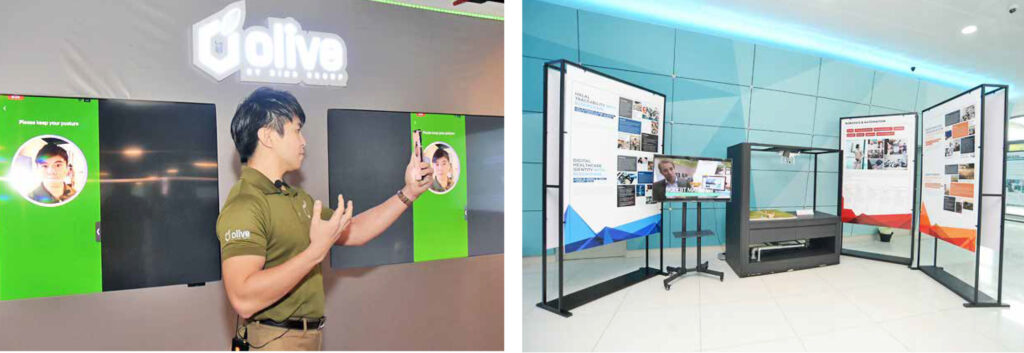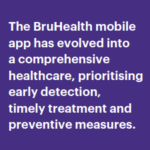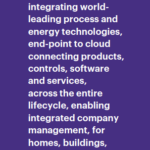Brunei Darussalam launched its fifth generation (5G) mobile service in June 2023, a transformative development that revolutionises the Sultanate’s telecommunications infrastructure. The deployment of 5G heralded a new era of connectivity, promoting swifter and more dependable services while inspiring innovative initiatives across industries nationwide.
Major telecommunications providers such as imagine Sdn Bhd have responded to the 5G surge by introducing business-oriented services customised for industries such as oil and gas, banking and finance, education, health, and micro, small, and medium enterprises (MSMEs).
This strategic approach aims to harness 5G’s capabilities for sectorspecific enhancements, illustrating the adaptability of technology to diverse business landscapes. In addition to the telco industry, 5G enables a faster experience that benefits sectors such as gaming and enterprises that use video surveillance, showcasing the technology’s potential for targeted advancements.
The integration of 5G technology into ambulances, as part of Brunei’s future advancement, will also transform the cardiovascular care landscape where time is of the essence. With 5G, the response time can be significantly reduced to provide emergency care in critical situations. Brunei’s commitment to technological advancements on the regional stage is further highlighted through the ongoing expansion of its 5G networks. As of October 2023, 90 per cent of populated areas are covered by 5G-ready mobile network.
Initiatives such as the Digital Innovation and Start-ups Ecosystem, coupled with a surge in Priority Infrastructure Projects, also underscore the nation’s proactive stance on digital transformation.
Transforming health
Beyond the initial focus on the COVID-19 pandemic, the BruHealth mobile app has evolved into a comprehensive healthcare, prioritising early detection, timely treatment and preventive measures.
The BruHealth risk screening feature also facilitates the collection of anonymised data at a larger scale. The aggregated data can contribute to valuable research initiatives aimed at improving the understanding of cardiovascular diseases, refining risk assessment models, and developing more effective prevention strategies. Another key element of the impact of transformation due to technology is the Brunei Darussalam Healthcare Information and Management System (Bru-HIMS).
 Bru-HIMS is an electronic health record system based on the policy of one patient, one record implemented in 2012. Within 10 years of implementation, the system has achieved its objective of facilitating information services to the public and proven beneficial especially during the pandemic.
Bru-HIMS is an electronic health record system based on the policy of one patient, one record implemented in 2012. Within 10 years of implementation, the system has achieved its objective of facilitating information services to the public and proven beneficial especially during the pandemic.
In September 2023, the Ministry of Health announced the upcoming implementation of Bru-HIMS 2.0 following a signing ceremony to upgrade the system. The project commenced in October 2023, expected to reach completion in 18 months.
With the new Bru-HIMS 2.0, health information and patient data will be stored more comprehensively. This project also seeks to expand the system’s capabilities and elevate features of the electronic medical record (EMR) system, clinical decision support, and seamless integration within the BruHealth system. The optimised infrastructure ensures high availability, resilience, scalability, and interoperability.
Bru-HIMS 2.0 will see closer integration with the BruHealth app, allowing patients to book appointments, register and pay for services online. Another new notable feature is the Enhanced Clinical Decision Support which provides doctors with clinical treatment suggestions, patient safety alerts and medicines inventory in real-time. Meanwhile, the Intelligent Care Plans and a Clinical Pathway Recommendation system will assist doctors in evaluating health risks and developing customised care plans. The implementation of this project extends to healthcare institutions including Jerudong Park Medical Centre, Pantai Jerudong Specialist Centre, and Gleneagles JPMC.
Driving digital Transformation
Bank Islam Brunei Darussalam (BIBD) strategically positions itself at the forefront of digital innovation to uphold competitiveness in the banking sector. Through Project Olive, BIBD aims to craft distinctive Islamic banking solutions while enhancing operational efficiency through intelligent process automation.
Launched in July 2023, the Olive mobile app is the first of its kind offering digital signature and digital contract. The app adheres to international personal data protection standards and advanced authentication technology. With the Olive app, BIBD At-Tamwil Berhad is the first financial institution in Brunei to use electronic ‘Know Your Customer’ (eKYC) nonface- to-face customer onboarding technology, allowing customers to open an account, apply for financing or transact digitally without having to be physically present at the counters.
The substantial increase in customer sign-ups since July signals a positive market reception, with BIBD At- Tamwil Berhad aiming to on-board a significant portion of its customer base onto the Olive platform by 2025.
Partnership strengthens technopreneurs
In November 2023, the Brunei Innovation Lab (BIL) and Unified National Networks Sdn Bhd (UNN) formalised a partnership to establish a collaboration focused on education, technical ICT expertise, and driving innovation growth in the country.
This partnership represents a crucial commitment from both national entities to align their plans and expertise, working towards the country’s aspirations for digitisation and the realisation of Brunei Vision 2035 to transform the nation into a Smart Nation.
 Leveraging its extensive experience in the technical aspects of the communication industry, UNN is actively contributing the technical dimension of ICT infrastructure and solutions within BIL. This collaboration aims to provide consumers and industry players with a comprehensive perspective and deeper understanding of the technology employed to connect the nation as a whole.
Leveraging its extensive experience in the technical aspects of the communication industry, UNN is actively contributing the technical dimension of ICT infrastructure and solutions within BIL. This collaboration aims to provide consumers and industry players with a comprehensive perspective and deeper understanding of the technology employed to connect the nation as a whole.
Beyond technical expertise, the partnership is in harmony with BIL’s mission to raise awareness and educate on emerging ICT technologies. Moreover, it serves as a platform, facilitating access for local start-ups and technopreneurs through BIL’s network of partners.
Schneider Electric
Schneider’s purpose is to empower all to make the most of its energy and resources, bridging progress and sustainability for all. The company calls this Life Is On. Schneider Electric drives digital transformation by integrating world-leading process and energy technologies, end-point to cloud connecting products, controls, software and services, across the entire lifecycle, enabling integrated company management, for homes, buildings, data centres, infrastructure, and industries.
 As the leader in the digital transformation of energy management and automation, Schneider Electric has earned a spot on Corporate Knights’ 2024 Global 100 list of Most Sustainable Corporations in the world for the 13th time in a row. This year, Schneider Electric ranked first among its peer group and came seventh in the Global 100 list. Schneider Electric’s inclusion in the top 10 demonstrates the company’s exemplary performance across all dimensions of Environment, Social, and Governance (ESG) and how sustainability is closely connected to the company’s business strategy and solutions. Schneider Electric is the only company in its field to have featured in the top 10 a record-breaking six times since 2012.
As the leader in the digital transformation of energy management and automation, Schneider Electric has earned a spot on Corporate Knights’ 2024 Global 100 list of Most Sustainable Corporations in the world for the 13th time in a row. This year, Schneider Electric ranked first among its peer group and came seventh in the Global 100 list. Schneider Electric’s inclusion in the top 10 demonstrates the company’s exemplary performance across all dimensions of Environment, Social, and Governance (ESG) and how sustainability is closely connected to the company’s business strategy and solutions. Schneider Electric is the only company in its field to have featured in the top 10 a record-breaking six times since 2012.
Corporate Knights’ Global 100 annual ranking is based on the assessment of publicly disclosed information of up to 25 key performance indicators (KPIs) including resource management, employee management, financial management, sustainable revenue and sustainable investment, and supplier performance. This year’s rigorous assessment looked at nearly 7,000 public companies with revenue of over USD1 billion.
Schneider Electric was also recently included in the Dow Jones Sustainability World Index for the 13th consecutive year. With an ESG score of 88 out of 100 awarded by rating company S&P Global in their 2023 Corporate Sustainability Assessment, Schneider Electric ranked first in its industry and secured its place in the Europe index (score date: October 27, 2023).
This recognition reflects Schneider Electric’s deep-rooted commitment to sustainability, and its continued efforts to deliver positive impact every day, particularly improving access to decent work across its value chain, establishing global standards for paid family leave, and implementing climate mitigation and resilience plans.
Schneider Electric has been in Brunei Darussalam since the 1980s and the company has continuously extended its support and services towards both private and government sectors as well as sustainability initiatives. In February 2023, Schneider Electric Brunei conducted an event themed Powering Brunei with Digital and Sustainability. The event brought industry leaders together to discuss, explore ideas and build strategies towards achieving the nation’s digital and sustainability goals.
The event was to align with Brunei Vision 2035, under one of the aspirations which is to build the workforce to be more resilient, adaptive and innovative. With that, Schneider Electric brought together key stakeholders and subject matter experts to amplify the conversation on sustainability through innovation that helps companies to embark on digitalisation and sustainability journey.
In June 2023, Schneider Electric lent its helping hands to participate in the Climate Change and Sustainability Week organised by the French Bruneian Business Association (FBBA) and sponsored by TotalEnergies EP (Brunei) BV (TEPB) and Schneider Electric hosted by Universiti Brunei Darussalam (UBD). The main purpose of this was to raise awareness on climate change and sustainability topics in line with the Brunei Vision 2035 whole-of-nation approach.
The Climate Change and Sustainability Week ended with a forum and a panel discussion led by Head of Brunei Climate Change Secretariat Ahmad Za’iemuddien bin Pehin Datu Lailaraja Major General (Rtd) Dato Paduka Seri Haji Awang Halbi, Director of Office for Wawasan Brunei 2035 Dr Hajah Huraini binti Pehin Orang Kaya Setia Jaya Dato Paduka Haji Hurairah, UNGCMYN Edey Suresh, Schneider Electric Cluster President for Singapore and Brunei Kim Yoon Young and Country Chair TEPB Jerome Saniez. The week’s closing programme featured a keynote address by Minister at the Prime Minister’s Office and Minister of Finance and Economy II Dato Seri Setia Dr Awang Haji Mohd Amin Liew bin Abdullah as the guest of honour.
Looking into 2024, Schneider Electric will continue to be committed and be passionate about people upskilling and this aligns with one of the aspirations of Brunei Vision 2035. Schneider Electric also plans on speeding up the awareness of the importance of digital and sustainability measures to its endusers and stakeholders in Brunei.
 Schneider Electric is very present in every market segment and industry in Brunei which include hotels, healthcare, banking, telcos, commercial and residential buildings, oil and gas, power and water utilities. The company also provides solutions such as critical and backup power, lower and medium voltage power products, cooling, building management systems, industrial automation, process automation, wiring devices, and software related systems such as DCIM, PLC and SCADA.
Schneider Electric is very present in every market segment and industry in Brunei which include hotels, healthcare, banking, telcos, commercial and residential buildings, oil and gas, power and water utilities. The company also provides solutions such as critical and backup power, lower and medium voltage power products, cooling, building management systems, industrial automation, process automation, wiring devices, and software related systems such as DCIM, PLC and SCADA.


